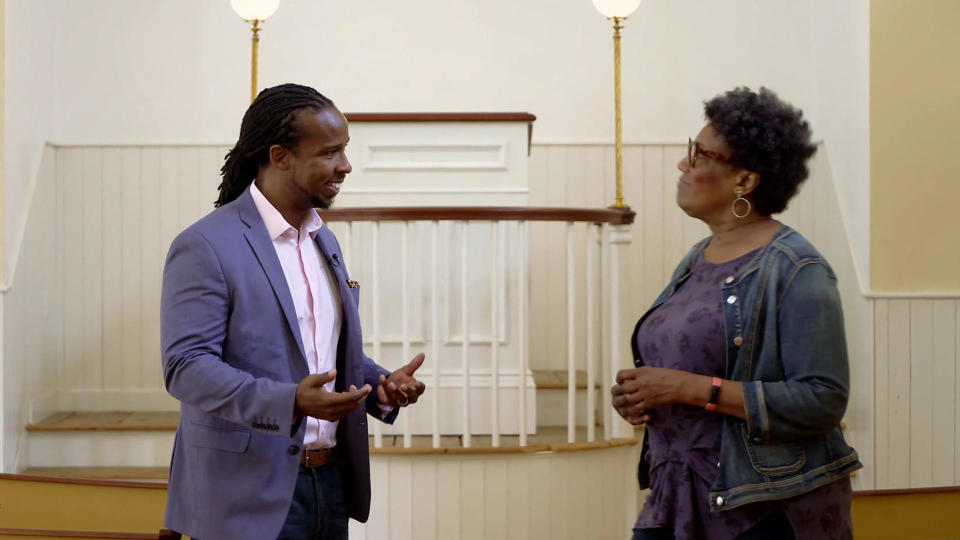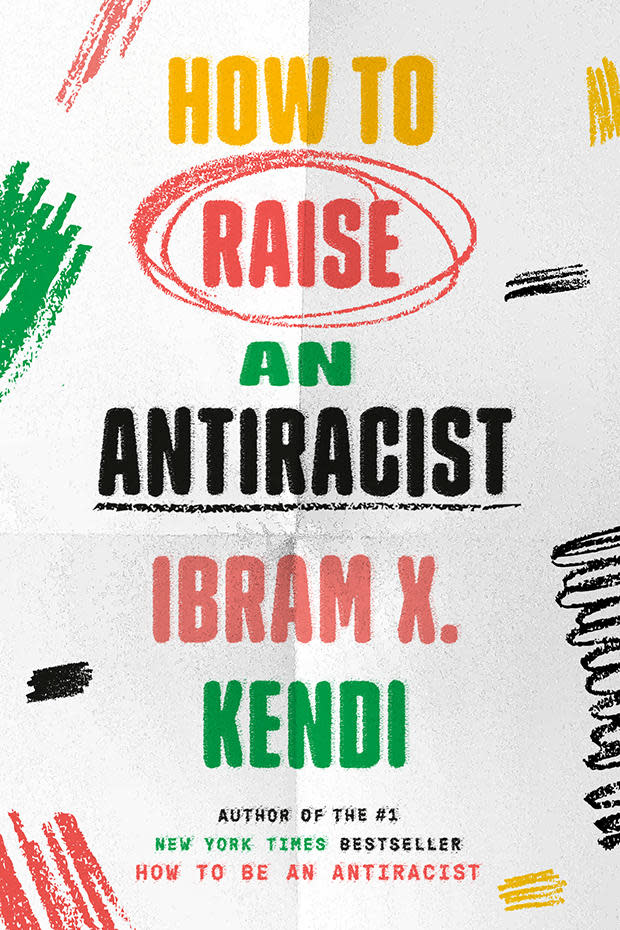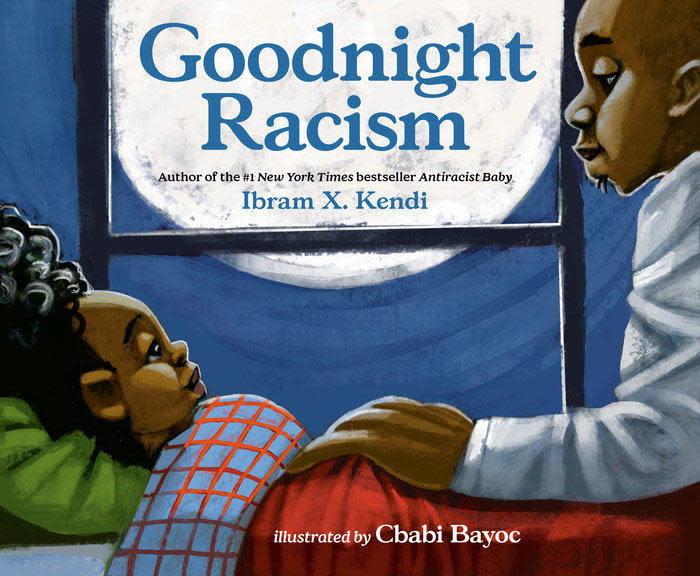Ibram X. Kendi on the importance of being antiracist
At the African Meeting House in Boston, the oldest Black church in the country, correspondent Nancy Giles met with Ibram X. Kendi, author of the bestselling "How to Be an Antiracist." "We're at one of the most historic spaces for Black people in North America," he said.
Built in 1806, the church was where abolitionists gathered. "They were discussing what was unheard of in the 19th century, which was a nation without slavery, the immediate emancipation of all enslaved people," said Kendi. "You had abolitionists saying to the American people, 'You can't expect to end chattel slavery by doing nothing. The more you do nothing, the more slavery spreads and harms and tortures and kills.'
"And in many ways, that's what's happening right now. If we don't actively seek to be anti-racist, then racism will persist."

Kendi is the founder of the Center for Antiracist Research at Boston University, where he is a history professor.
Giles asked, "Why is it not enough to not be a racist, as opposed to being an anti-racist?"
"Well, I think it's important for people to know the opposite of being racist is being anti-racist," he replied.

Kendi has argued for being antiracist in a series of best-selling books. "No one is inherently racist or antiracist," he said. "It's about what we're doing. And so, when we're expressing that the racial groups are equals, we're being antiracist. When we're supporting a policy that is leading to a racial disparity, we're being racist. So, I'm encouraging people to constantly think about, 'What are we doing? Or even not doing?'"
His views have been polarizing, to say the least. His work was injected into the hearings for Supreme Court Justice Ketanji Brown Jackson, courtesy of Senator Ted Cruz, who criticized his book, "Antiracist Baby." "One portion of the book says babies are taught to be racist or antiracist – there is no neutrality," Cruz said.
And Fox News personality Tucker Carlson described Kendi's "How to Be an Antiracist" as "garbage," "embarrassingly stupid" and "poisonous."
In a speech at Harvard University, Kendi said, "It is dangerous to tell the truth today. I would know! But as we've learned in the last few years, it is dangerous to not tell the truth."
Giles asked, "For people who are like, 'Oh, slavery was over 200 years ago. Why are we going back to that? Things are level now. It's a level playing field.'"
"Well, first, if it was a level playing field, there would not be all these racial disparities, from health to wealth to education to incarceration," Kendi replied. "Or, you think there is a level playing field and the reason why certain racial groups are less wealthy or more likely to be poor or more likely to die or more likely to be incarcerated is because there's something inferior about them?
"I don't think that any racial group is inferior or superior. And so, what that means is, there isn't a level playing field. And then the question becomes: why isn't there a level playing field? And you can't answer that question without talking about the present, and the history of this country – and you can't talk about American history without talking about slavery."
Kendi has two new books coming out, aimed at children and parents. One is a takeoff on the classic book "Goodnight Moon," called "Goodnight Racism."

His 6-year-old daughter, Imani, recorded the audiobook (with some coaching from Dad).
Kendi said, "It's not a coincidence that racist ideas have spread across time and across humanity. The reason why they have is because they're simple: 'Dark is ugly; light is good. Dark people are bad; light people are smart.' These are very simple ideas that even a two- or three or four-year-old can understand. And studies are showing that even preschool children are choosing who to play with based on skin color."
The new books are being released as teaching about racism is under fire, with some states passing laws to take books out of schools that might make students "uncomfortable."
Kendi's wife, Dr. Sadiqa Kendi, a pediatric emergency room physician, said, "I think that arming our children with information is protective. That applies when it comes to arming them with understanding our history, like a true account of our history, helping them to learn about racism and about antiracism. And with Imani, her knowing, this is what it is, this is the work that your father is doing, and unfortunately because of that, there are people who don't like him and who don't like our family."
Ibram said, "When we're crossing the street with our two-year-old, we teach them, 'Look both ways. Make sure there's not a car coming.' Similarly, we have to teach them that there's these 'cars' of racist ideas that are coming that could hit you."
With his daughter for inspiration, Ibram X. Kendi is looking back to history … and looking forward for generations to come.
READ AN EXCERPT: "How to Raise an Antiracist" by Ibram X. Kendi
For more info:
ibramxkendi.com"How to Raise an Antiracist" by Ibram X. Kendi (One World), in Hardcover, Large Print Trade Paperback, eBook and Audio formats, available June 14 via Amazon, Barnes & Noble and Indiebound"Goodnight Racism" by Ibram X. Kendi, illustrated by Cbabi Bayoc (Kokila), in Hardcover, eBook and Audio formats, available June 14 via Amazon, Barnes & Noble and IndieboundCenter for Antiracist Research, Boston UniversityVirtual Black Heritage Trail Tour (National Park Service)
Story produced by Alan Golds. Editor: Ed Givnish.
See also:
The difference between being not racist and being antiracistUnmasking the racist history of blackface ("Sunday Morning")
Nature: Horses on the Outer Banks

